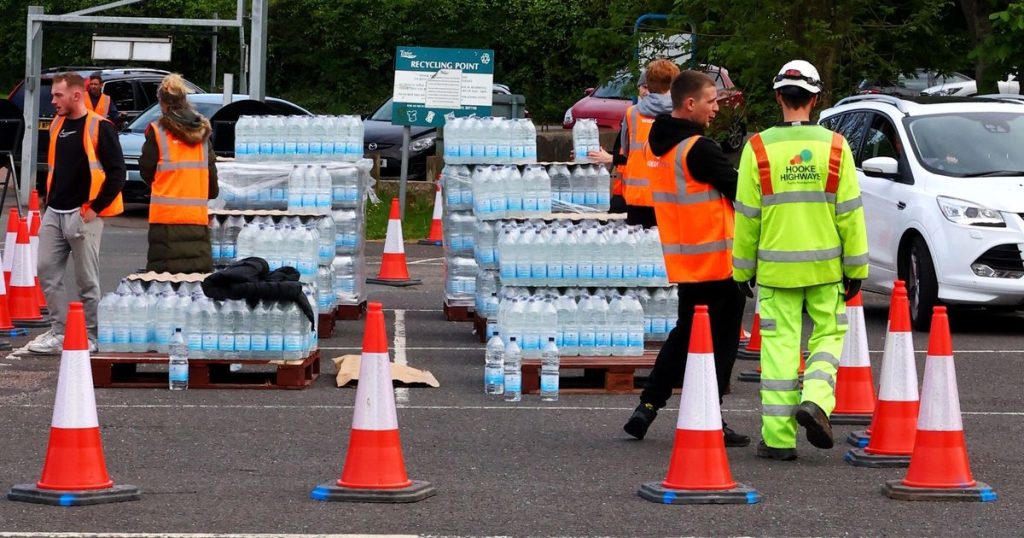Elaine Hollier, an 80-year-old grandmother from Brixham, Devon, was rushed to the hospital on Saturday after experiencing severe dehydration and vomiting, leading to a diagnosis of cryptosporidiosis. Her husband, Dennis, expressed deep concern over her condition and the lack of clarity initially from medical professionals until it was confirmed that the parasite was present in the water supply serving their home. The outbreak of cryptosporidium in an underground reservoir led to over 20 cases of illness in Brixham, prompting South West Water to distribute emergency bottled water rations. Despite this, the community faced shortages and challenges in accessing clean water, causing disruptions to daily life and concerns over tourism impacts.
Local residents like shop worker Jemma Michaels shared their frustration at the lack of communication from authorities about the water contamination, leading to chaos in the town. Businesses, especially those in the tourism industry, suffered cancellations and loss of bookings due to health concerns surrounding the contaminated water supply. South West Water, however, assured customers that the testing results for cryptosporidium came back clear and that the water was safe to use as normal. Their support for investigations by the UK Health Security Agency aimed to address the outbreak and ensure the safety of the water supply for residents in Brixham. The situation highlighted the importance of timely communication and appropriate responses to waterborne health hazards to prevent widespread illnesses and disruptions.
The contamination of the water supply with cryptosporidium in Brixham raised serious concerns about public health and access to clean water, particularly for vulnerable populations like the elderly and children. Elaine Hollier’s hospitalization highlighted the severity of the situation and the challenges faced by medical professionals in diagnosing and treating cryptosporidiosis. The outbreak underscored the need for proactive measures by water authorities to monitor and address potential contaminants in the water supply to prevent widespread illnesses and ensure the well-being of the community. The impact on local businesses and tourism highlighted the broader economic repercussions of waterborne health crises and the importance of effective crisis communication and response strategies.
The community response to the water contamination crisis in Brixham showcased the resilience and solidarity of residents in facing challenges together. While the lack of access to clean water and disruptions in daily life posed significant hardships, the support and cooperation among neighbors and local businesses demonstrated a sense of unity and shared responsibility. Authorities like South West Water played a crucial role in addressing the outbreak and providing emergency assistance to affected residents, emphasizing the importance of collaboration between stakeholders in managing public health emergencies. The incident served as a reminder of the vulnerability of water supplies to contamination and the need for robust monitoring and response mechanisms to safeguard community health.
Overall, the water contamination incident in Brixham highlighted the complexities of managing public health crises and the need for transparency, communication, and collaboration between authorities, residents, and businesses. The impact on individuals like Elaine Hollier underscored the urgency of addressing waterborne diseases and ensuring access to safe drinking water for all. The community’s response and resilience in the face of adversity showcased the strength of solidarity and cooperation in overcoming challenges. Moving forward, lessons learned from this incident can inform better practices in water management, crisis communication, and emergency response to protect public health and well-being in similar situations.


